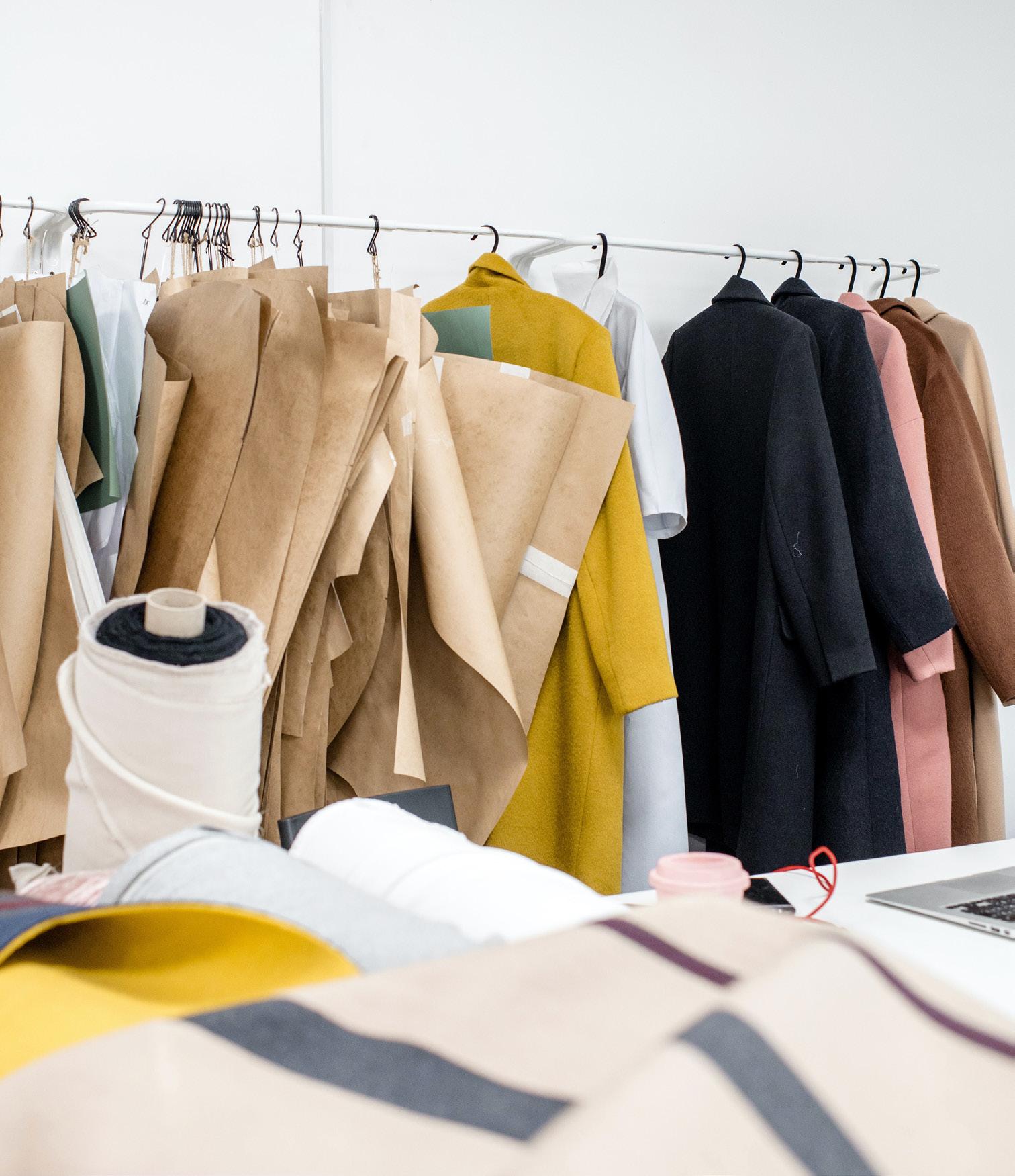
3 minute read
What’s happening in fashion right now?
The news of boohoo stealing british independant designer kai’s work has been spreading around instagram like wildfire. Back in 2019, kai designed a bespoke pattern that gives off strong 60s vibes in collaboration with grapes pattern bank, and now three years later, boohoo is selling an exact replica of their designs. Now, this isn’t the first time that big fast fashion brands have stolen from small independent businesses.It has happened countless times with other small designers such as: tuesday bassen, scamp & dude, emma warren and amy yeung. It’s time for this to end and for justice to all designers this has happened to, from fashion to furniture designs. There needs to be more protection and action for those who are not financially secure enough to fight.
This year’s London Fashion Week (LFW)is officially going gender neutral. About time, right?? LFW has been going on since 1984, traditionally showcasing womenswear and menswear. This year’s Men’s LFW will be replaced with a gender-neutral virtual showcase.It’s well and truly been a long time coming for the fashion industry to move towards gender neutral clothing and dissolve the stigma and divide around this topic. Gender fluid clothing lines allow everyone to feel seen, fashion companies to have designer flexibility and bring the industry one step closer to fashion sustainability.
Advertisement
Sir Philip Green’s empire Arcadia Group has fallen. If you don’t know what this all means, Arcadia Group includes big brands such as Topshop, Debenhams and Miss Selfridge.What is Oxford Street going to be like without the massive iconic Topshop store? It felt like such a right of passage for me as a teenager, getting the train to Oxford Street and meeting all of my friends outside Topshop for a mooch around. In many ways Topshop was a coming-of-age social hub first and a leading high-street store second. On the other hand, it feels like a good end of an era, bringing us one step closer towards change. What once was a strong group of go-to clothing brands is now a sight of distress for the thousands of people that have their jobs and livelihood on the line. But what does this mean for the future of these fast fashion brands and retail in general?
written by Leah Felton

Gender neutral LFW, Unsplash, Michael Lee
If you love fashion and Instagram, I’m sure you’ll have heard of the Instagram account called Diet Prada. They’ve recently opened up about a lawsuit that began in early 2019, where Dolce & Gabbana (D&G) began seeking over $600 million in loss of sales from the two US bloggers who run Diet Prada. Their post from Friday 05 March read: ‘On Monday, we filed a defence of our freedom of speech in answer to defamation claims brought in a Milan court by Dolce & Gabbana’. In a short summary of what’s happening, Diet Prada stood up for the anti-Asian hate rising in the US and in turn criticised D&G for their stereotyping, sexism and anti-Asian remarks of Chinese women from the 2018 advertising Weibo campaign. Now D&G is filing a claim for the lost revenues and harm this caused them, which goes against the freedom of speech for these two US bloggers and their right in denouncing racism when they see it!
Now that non-essential shops are opening up from Monday 12 April, what does this mean for the post-pandemic future of retail? Coronavirus has caused a considerable impact on the fashion industry, as evidenced by several bankruptcies and store closures. But, most importantly, what kind of impact has this had on the people that make our clothes? With the news of the military coup in Burma (also known as Myanmar) putting risk on foreign investment, ‘this poses the threat of trade sanctions, and may prompt some clothing companies to sever their sourcing ties with the country’ (Leonie Barrie, juststyle article). In Burma, clothing, footwear and handbags are the second largest export sector for the country. If this trade is severed there could be serious consequences for this economy, even more so after the cancellations of orders from Covid-19. Will this cause the fashion industry to stop being so drastically dependent on cheap synthetic fibres and cheap labour for their clothes? I can only hope that it will be a wakeup call for both fashion brands and consumers to take action on their harmful habits.

Stolen designs Ksenia Chernaya via Pexel








